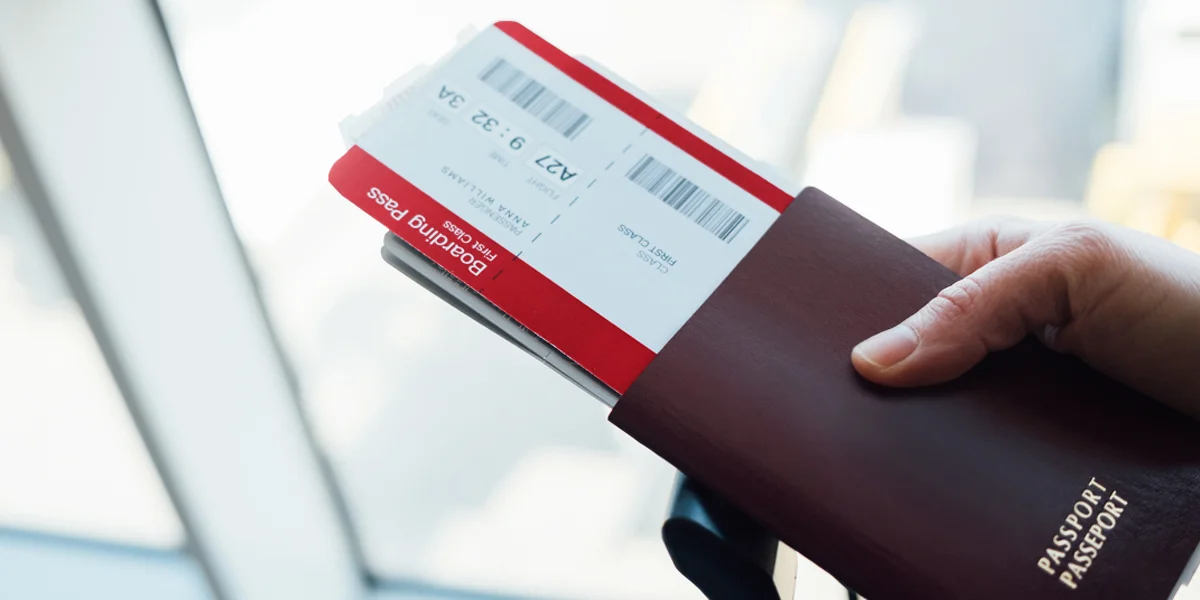
By, Gokite Tour
- 1.1k Views
- 7 Min Read
- (0) Comment
Different Types of Germany Travel Visas Explained
Germany is one of the popular destinations in Europe due to its rich history, scenic beauty and cities such as Berlin, Munich and Hamburg. Whether you want to visit the famous castles of Germany and enjoy them or attend international trade fairs which are held there and are famous all over the world, or just enjoy the culture of Germany, you are to realize that you have to know about the types of Germany travel visas offered to you. Slinging the various kinds of travel visa to Germany will help you in making the correct pick of the travel visa appropriate to meet your travel motive and hence your journey will be easy and free of complications.
The question most travellers usually ask is which Germany visa is easy to obtain? Or how many are the types of visa in the Germany? It all depends on your unique situation, e.g., whether you have the citizenship of the country you are going to stay in, the duration of your stay, and your travel destination. This guide will take you through the various major types of Germany travel visas, such that you make a wise decision before your application period.
Types of Travel Visa to Germany
1. Schengen Visa (Short-Stay Visa – Type C)
Schengen Visa, also referred to as the short-stay Type C visa is one of the most popular forms of travel visa to Germany. This type of visa enables one to enter Germany within a duration of 90 days in 180 days. It is ideal to the tourists, business travellers and visitors to their family or friends.
During the stay, the holders of this visa are also allowed to freely travel to any of the 27 Schengen countries. To all who ask the question, Which Germany travel visa is easy to obtain? The Schengen Tourist Visa is mostly believed to be the easiest visa to obtain in case of a short visit; however, one must present the required documents and must be eligible to travel.
2. Airport Transit Visa (Type A)
This visa is needed by the travellers of some countries who have to fly through a German airport on their way to another place. It does not allow the traveller to exit the international transit of the airport. Although it is a very particular type of visa, it is one of the forms of travel visa to Germany that guarantee that the immigration laws are fulfilled even during layovers.
3. Business Visa
Another type of short-stay Schengen Visa, the Business Visa is focused on the people who are interested in holding business meetings, conferences, or training in Germany. It provides stay up to 90 days and is convenient to corporate travellers who require a fast and efficient entry in Germany to conduct business.
4. Student Visa
The Student Visa is necessary to those who will continue their studies in Germany. It serves the students pursuing full-time educational courses or language courses that take more than three months. It is a national visa (Type D) and this can usually lead to residence permits. When you say How many visa types are there in the Germany, then this is the major classification.
5. Job Seeker Visa
Germany has a special Job Seeker Visa that allows highly qualified professionals to seek work opportunities in the state. This half-year visa will allow the applicants to seek jobs in Germany and live there. After obtaining employment, the job can be changed into work visa or residence permit.
6. Work Visa (Employment Visa)
The Work Visa is a national visa that enables long-term residence in Germany; it is offered to those who have already found a job in the country. It encompasses various jobs, such as IT specialists, engineers, medical workers, and other highly qualified specialists. This visa like the Student Visa falls under the national visa (Type D) category.
7. Visa Family Reunion
This visa is to be used by close relatives of the German citizens or legal residents who want to reunite with their loved ones in Germany. The Family Reunion Visa is one of the category of travel visa to Germany and it is geared toward ensuring the unity of the family whether it is between spouses, children, or dependent parents.
8. Freelancer Visa
The Freelancer Visa in Germany is designed to suit non-employed individuals such as artists, writers and IT freelancer. It enables people to work and live in Germany on freelance basis and is generally provided in the form of national visa which could be later changed into residence permit.
9. Medical Treatment Visa
A Medical Treatment Visa can be obtained by those travellers who need a special medical treatment in Germany. They are able to get healthcare services in this short-stay Schengen Visa that may not be offered in their own countries.
10. Guest Scientist Visa
Guest scientists invited by German research institutions are also given visas in Germany. This visa can be used in both short and long term academic and scientific cooperation.
Conclusion
Depending on what kind of travel you want to do, the visa system in Germany can help to meet your needs (i.e. you want to take a small vacation, attend business meetings, study at an institution of higher learning, or find a long-term job). The knowledge of the types of travel visas to Germany can assist you to prepare the right documentation and overcome the most obvious failures in getting Germany Visa from Oman.
This guide should have answered your most important questions when you have been asking, which is the easiest visa to obtain in Germany or how many types of Germany travel visas are there in Germany. German embassy or consulate is your best source of accurate information as usual and make sure to apply for your visa early enough before your planned departure.
FAQs
Q1: What is the number of visas in the Germany?
A: Germany has a number of visas, which can be classified into two broad groups, that is, short-stay (Schengen Visa Type C) and long-stay national visas (Type D). These are tourist visa, business visa, student visa, job seeker visa, work visa, family reunion visa, freelancer visa, medical treatment visa, airport transit visa and guest scientist visa.
Q2: What is the easiest to obtain Germany visa?
A: Tourist Schengen Visa (Type C) is considered to be the easiest visa to get, in general, and particularly, when one wants to travel on a short trip such as tourism, visiting friends or relatives, or attending conferences.
Q3: Is it possible to transform a tourist visa to a work or student visa?
A: No, you cannot exchange a short-stay Schengen Visa to a long-term national one in Germany. This is because you have to go back to your home country and apply the right visa there.
Q4: How long does a German visa take?
A: The processing takes time depending on the type of visa. The regular Schengen visas are issued in 15 working days, whereas the national ones may require several weeks or months, depending on the number of applications and personal conditions.
Q5: Are all nationalities allowed to enter Germany without having a visa?
A: No, the citizens of the EU/EEA countries and a number of countries whose citizens do not need a visa to enter their country can visit Germany without a short-term visa. Nonetheless, visitors to most non-EU countries are required to have a Schengen or national visa that will be issued depending on the nature and the duration of the visit.
Most Popular International Visas for Omanis
Mauritius visa | Mexico Visa | Mongolia visa | Montenegro Visa | Morocco visa | Netherlands visa | New Zealand Visa | Nigeria Visa | Norway visa | Oman Visa | Peru Visa | Philippines Visa | Poland visa | Portugal Visa | Qatar visa | Russia visa | Saudi Arabia Visa
How to Apply visa for other countries
Schengen visa | Singapore visa | South Africa visa | South korea visa | Spain visa | Sri lanka visa | Sweden Visa | Switzerland visa | Thailand Visa | Turkey visa | UK Visa | Uruguay visa | US visa | Vietnam visa | Uzbekistan Visa
Recommended Read: Complete Visa Information for Germany Travellers





Leave a comment:
You must be logged in to post a comment.